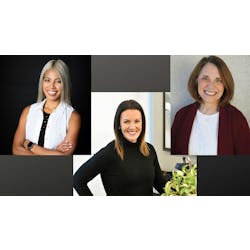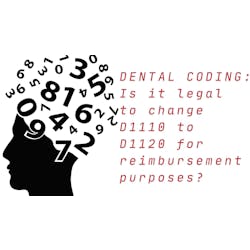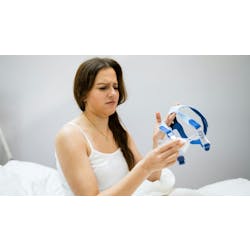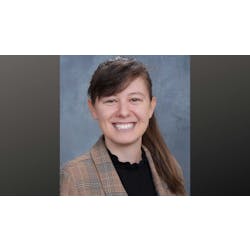by Lory Laughter, RDH, BS
Last year at RDH Under One Roof, I was trapped at a table and practically forced to listen to a fellow hygienist recite why she could not be a member of the ADHA. Her reasons were nothing new, but she felt her situation was unique. Her first argument was the all-too-popular "What has the ADHA ever done for me?" Her second comment, however, caused a few smiles to form around our seating area. It seems the ADHA is too political for her liking.
Political involvement is the only way the dental hygiene profession can survive. Being involved in the political processes necessary to advance dental hygiene is part of what the ADHA is doing for every one of us — member or not.
I know it sounds cliché, but the ADHA is not some separate governing body looking down upon our profession. We are the ADHA — each individual hygienist, each local component, and every state association. Basically, the ADHA is doing for you exactly what you are willing to do for yourself.
In 1998, the California Dental Hygienists' Association was successful in establishing a new category of licensure and having it written into law. The RDHAP, Registered Dental Hygienist in Alternative Practice, fills a necessary role in access to care in California. These health-care professionals provide services in schools, institutions, free clinics, residences of homebound patients, and in rural areas where dentists don't seem to want to hang a shingle.
To obtain a license as an RDHAP, the hygienist must meet or fulfill specific requirements. The applicant must hold a current RDH license and have engaged in clinical practice as a dental hygienist for at least 2,000 hours in the preceding 36 months. The applicant must also hold a bachelor's degree or equivalent, take an approved course of study equaling at least 150 hours, and pass a written exam. It sounds a bit daunting, but I am a firm believer in increasing our education standards.
The RDHAP began as a trial under the HMPP (Health Manpower Pilot Project). The goal was to determine if the hygienist could function without the direct supervision of a doctor, much the same as the RN is allowed. I've often wondered why we have essentially the same educational requirements but less freedom to practice than nurses. Maybe it has something to do with their ability to organize themselves for the larger good. That aside, while the project was a success, a few dentists tried to sue the dental hygienists for practicing without a license. The CDHA fought a hard and expensive political battle to keep the RDHAP.
I remember when the bill was in the state legislature and a patient of mine was a state senator. She was telling me why she was in favor of the RDHAP when the dentist I worked with at that time added his opinion. He believed that the handful of zealot hygienists would soon find out they didn"t have the business sense to make a living providing cleanings to poor people. We were both shocked and offended at his remark.
I know a few dental hygienists in alternative practice, and they are successful in their pursuits. Shirley Smith, RDHAP, from Monterey, Calif., sees Alzheimer's patients in their homes and assisted living centers. Shirley truly enjoys her patients and knows she is providing health care (not a cleaning) to those who would otherwise be left in pain. Her humor helps carry her through some of the less than pleasant experiences of dealing with special needs clients.
Noel Kelsch, RDHAP and president elect of the CDHA, recently received her license to practice in alternative settings. Noel's ambitions are always inspiring to me, and this case is no different. Noel uses her license to treat patients in the free clinic where she volunteers. She can now provide health-care services when a dentist is not present. She also plans to take her skills and knowledge to a population often overlooked by the dental community — patients living with cancer.
Dr. Doubting was wrong — an RDHAP can indeed run a business and be successful without the constant supervision of a dentist. More importantly, these wonderful health-care providers are rendering much-needed services where dentists aren't available. Success isn't always determined by the amount of money coming in — often it is defined by the amount of good provided.
In 43 states, a dental hygienist can practice under varying degrees of general supervision. That number would be much lower without political involvement by our state associations. As of November 2007, dental hygienists in 40 states had legislation allowing for the administration of local anesthesia. In Colorado, a dental hygienist can own and operate a practice independently of a dentist. No doubt the Colorado Dental Hygienists' Association was very active in that gain.
The New Hampshire Dental Hygienists' Association is currently active in testifying in support of a bill that would to create a midlevel dental provider. The NHDHA chose the Advanced Dental Hygiene Practitioner proposal of the ADHA as its model for making the bill. The bill is now in study committee and while the ADHP is not the only model being studied, the NHDHA was well received by the committee and showed a willingness to work with dentists on solving the access to care problem in their state.
The ADA has a model for addressing access to care problems faced by many in our country. Their model has received a new name, but the premise is the same. Instead of having educated and qualified dental hygienists provide dental services in areas currently receiving little or no dental care, the ADA would like to train a new team member. Training and education are not equal.
I am unable to fathom how anyone thinks a trained individual without experience can provide care at the same level as an educated professional already in the health-care arena. Why is the ADA so intent on a new position as opposed to allowing dental hygienists to fill these roles? Are we really that big of a threat to their careers?
Next time you wonder what your professional organization is doing for your career, visit your state association Web site. I am sure all the convincing you need is right there for your reading enjoyment. The ADHA and state associations are there to improve and advance the career of every dental hygienist — member or not! It's nice of us to let all dental hygienists play on our team, even if some of you are ball hogs.
About the Author
Lory Laughter, RDH, BS, divides her full-time clinical practice between general and periodontics practice in Napa and Sonoma, Calif. She is co-owner of Dental IQ, a continuing-education provider responsible for bringing quality courses and speakers to the entire dental team. In her spare time, Lory enjoys writing, speaking, volunteering, and providing shelter to homeless pets. You may contact her at [email protected] or through www.dentaliq.net.





